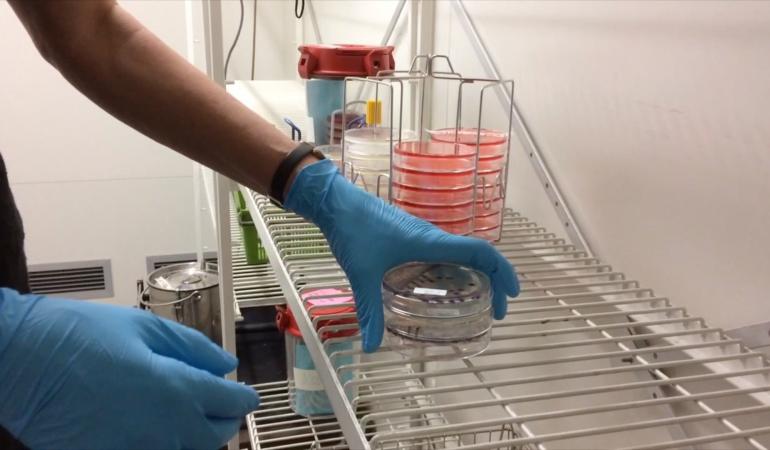
It is largely assumed within the scientific community that a healthy intestinal microbiome can provide resistance against the settling, growth and multiplication of antibiotic-resistant bacteria. However, researchers from the Leiden University Medical Center (LUMC), Amsterdam Medical Centre (AMC) and National Institute for Public Health and the Environment (RIVM) have recently discovered this may not hold true for all resistant bacteria types.
A healthy gut microbiome (which consists of all the micro-organisms in our intestine, including bacteria), is important for maintaining human health. It produces useful substances, such as vitamins, and helps protect us against infectious pathogens. If our healthy intestinal flora is disturbed, pathogenic bacteria can grow and multiply.
Research collaboration
Researchers from the LUMC, AMC and RIVM have jointly investigated whether the composition of the gut microbiome can help protect against the presence and settling of a specific antibiotic-resistant Escherichia coli (E.coli). The study was conducted with participants of the RIVM PIENTER project, which focuses on how well the Dutch are protected against infectious disease and whether this has changed over time. For this, thousands of partaking individuals are filling in extensive questionnaires and providing materials, such as stool samples. The researchers findings have been published in The Lancet Microbe.
No differences
”Our research shows that the intestinal flora of individuals in which specific antibiotic-resistant Escherichia coli are present does not differ from the composition of those without the bacterium”, says Quinten Ducarmon, recent PhD graduate who performed his work at the LUMC Department of Medical Microbiology. This is an important discovery from a public health perspective, as these antibiotic-resistant bacteria lead to thousands of deaths worldwide every year.
Previous studies
According to Ed Kuijper, Professor of Experimental Bacteriology at the LUMC and affiliated Microbiological Expert at RIVM: “Our results are rather striking because previous studies suggest some types of bacteria in the intestine are capable of preventing antibiotic-resistant ones from settling. However, these studies have not accounted for additional factors that can influence the acquisition of resistant E.coli, including a person’s lifestyle choices, other diseases and the use of medication”.
Conclusion
Quinten Ducarmon notes: "Most research focuses on the type of bacteria and not so much on what they do, or what substances they produce. By including this information in our research we were able to conclude that the composition and function of the microbiome has no influence on the presence of antibiotic-resistant E. coli bacteria in the intestine!”